|
April 16, 2020
Workers Continue to Speak Out
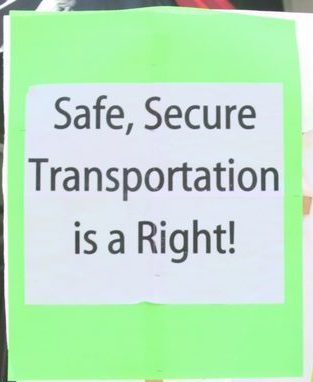  
Partial Reopening of Residential Construction Sites in Quebec
• Workers Step Up the Fight for Proper Working Conditions - Pierre Chénier
• Interview, François Patry, President, National Brotherhood of Carpenters,
FTQ-Construction Local 9
Transportation Workers
• The Need to Compel Canadian Airlines to Fully Protect Workers
and Passengers
• Frontline Public Transit Workers Demand Action to Protect Transit Workers
Partial Reopening of Residential Construction Sites in Quebec
- Pierre Chénier -
On April 13, the Quebec government announced that it is reopening
some residential construction sites starting April 20. These are sites
for residential units that are scheduled to be delivered by July 31.
Construction sites in Quebec have been closed since March 24.
According to Quebec's Labour Minister, the work that was done during
the shutdown by the COVID-19 Committee set up by the Labour Standards,
Pay Equity and Workplace Health and Safety Board (CNESST) has created
confidence that the reopening of residential construction, and
eventually of all construction sites, is going to be done
safely for construction workers.
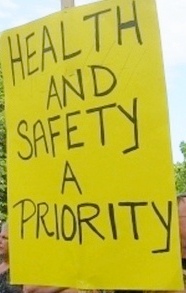 Even
a cursory look at the guide produced by the committee reveals that the
Labour Minister's claims are false. It is shocking that on the issue of
sanitary installations, the guide states that "for construction sites
with less than 25 workers, a chemical toilet can be used." Besides
anything else, a chemical toilet does not have running water and
soap for the workers to wash their hands. Most residential construction
sites in Quebec have fewer than 25 workers. This is being imposed on
construction workers at a time the World Health Organization has
stressed that frequent and thorough washing of hands with soap and
water is a primary measure to stop the spread of COVID-19 and the
Quebec
government has declared a public health emergency. Still, this is not
enough to convince the Quebec government to provide construction
workers with basic sanitary measures as a sine qua non condition for the reopening of construction sites. Even
a cursory look at the guide produced by the committee reveals that the
Labour Minister's claims are false. It is shocking that on the issue of
sanitary installations, the guide states that "for construction sites
with less than 25 workers, a chemical toilet can be used." Besides
anything else, a chemical toilet does not have running water and
soap for the workers to wash their hands. Most residential construction
sites in Quebec have fewer than 25 workers. This is being imposed on
construction workers at a time the World Health Organization has
stressed that frequent and thorough washing of hands with soap and
water is a primary measure to stop the spread of COVID-19 and the
Quebec
government has declared a public health emergency. Still, this is not
enough to convince the Quebec government to provide construction
workers with basic sanitary measures as a sine qua non condition for the reopening of construction sites.
For decades, construction workers have been waging a bitter fight
for such basics as adequate sanitary installations on all sites. The
government has deliberately chosen to impose the status quo on
construction workers in the midst of a crisis, and cover it up with
nice-sounding language, rather than finally meeting the legitimate
demands of
construction workers by solving this long-standing problem. Nor was a
second of consideration given to the opportunity to satisfy the
long-standing demand of construction workers for full-time prevention
representatives on construction sites. The only role of the prevention
representatives would be to make sure that adequate prevention is done
on
the construction sites, report on violations of health and safety
standards, and make proposals to correct unsafe conditions. They would
be of immense value during the pandemic in which safety hazards are
significantly increased.
The government still considers that construction workers
have no
rights and are basically troublemakers interfering with the fulfillment
of narrow private interests. Construction workers create immense value
for society and their claims and rights must be upheld, including the
right to have a decisive say in the determination of their working
conditions. The COVID-19 crisis has not changed the basic anti-social
stand of the state and of the ruling elite towards construction
workers, which has led, among other things, to the construction sector
being the most deadly sector of Quebec economy year after year. The
state-organized violation of the rights of the construction workers has
to stop and it has to stop now.
This leaves construction workers no choice but to step up their
fight in defence of their health and safety which also defends the
health and safety of everyone. They will do their utmost to defend and
protect themselves and demand that the authorities take up their
responsibility to provide those rights with a guarantee. They are doing
so in
difficult conditions and need the full support of all workers and the
building of public opinion which supports their demands that they be
provided with everything they need so that construction work can
continue during the pandemic.
Let us make sure that we support and popularize their demands in the
court of public opinion so that it is impossible for the state and
construction companies to isolate them.

Workers' Forum: What is your opinion on the Quebec government's decision to allow some residential construction to resume?
François Patry: At Local 9, we have always been in
favour of the opening of construction sites. What we want is to make
sure that employers respect the conditions that are necessary for the
opening of construction sites. That means sanitation, having proper and
clean washrooms, places where we can eat, having the space
necessary to maintain the two-metre social distancing, having a work
organization that allows us to work in a safe manner. It also means
having the equipment that allows us to work two metres apart. In the
document produced for the reopening of construction, it talks about
transporting workers in pairs by truck. Two per truck does not respect
the
two-metre distance.
If all safety measures are respected, we agree with the reopening of
the construction sites. Our problem is that the safety rules were not
respected before the sites were shut down so how are they going to do
it now? What has changed so that now the safety conditions are going to
be respected? There is nothing that tells us that will be the
case.
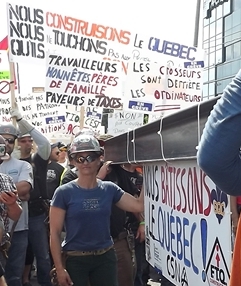 Unfortunately,
my experience in 30 years of health and safety in construction is that
employers do not put the necessary energy into prevention. This is not
part of their work habits. Even in a context such as the one we are in
right now, I do not believe they will change their way of doing things.
However, we have to give them a chance, but
we will be present on the construction sites to ensure that they comply
with the rules. Unfortunately,
my experience in 30 years of health and safety in construction is that
employers do not put the necessary energy into prevention. This is not
part of their work habits. Even in a context such as the one we are in
right now, I do not believe they will change their way of doing things.
However, we have to give them a chance, but
we will be present on the construction sites to ensure that they comply
with the rules.
It is clear that it is through concrete action on construction
sites, at the workplace itself, that situations can be changed. It is
not enough to say that I have a nice labour code or a nice regulation
on health and safety in the workplace, the issue is to apply these
health and safety regulations. FTQ-Construction and Local 9 have always
denounced
the fact that, for construction employers, prevention on construction
sites is the least of their concerns, and measures taken are always no
more than the minimum that is provided for by the safety code for the
construction industry. We fought for 15 years on construction sites to
have washrooms that meet minimum health standards. We had to fight
and we are still fighting to have them.
We understand that there are people who have bought houses, condos,
that they are waiting to take possession in July, and that it will be
hell for them if they don't get them. But it must not be that we, the
construction workers, become the agents of a new rise in the number of
COVID-19 cases. This can happen because although we want to
get the economy going again there is a danger if employers do not
respect their obligations and do not act responsibly.
WF: What do you think of the "Guide COVID-19 --
Construction Sites," which was issued by the committee that was set up
by the Labour Standards, Pay Equity and Workplace Health and Safety
Board (CNESST) to guide the reopening of construction sites?
FP: This guide tells me that things have not changed
much. Nothing has been changed in the safety code for the construction
industry. A few things have been added: the employer has to ask the
worker if he's had any symptoms, if he has a fever, if he's just
returned from a trip out of the country. It says too that the employer
must do everything possible to ensure that the two-metre distance is
respected. That is it.
As far as toilets are concerned, the guide reproduces exactly what
we have in the code. For work sites with 25 workers or less, toilets
will still not need running water when the work sites reopen. According
to the code, on construction sites, in order to be entitled to a
trailer to eat, it takes at least 10 workers who work for more than
seven
days. It is the same thing in the guide. The document they put together
makes no changes to the Safety Code for the construction industry.
In the past, we were forced to negotiate that flush
toilets with a sink and water for hand-washing, would be reserved for
construction sites with 25 or more workers, because the employers did
not want to talk about providing such washrooms for small construction
sites. In the committee that is responsible for reviewing the code, we
have to have unanimity, otherwise nothing will move forward. This is a
never-ending negotiation and that is why it took us 15 years to come up
with regulations. How is it that in the midst of a public health
emergency, the government used its power to force people to stay at
home and to refrain from assembling, which we accept and implement
because we understand the situation, and it cannot even decide that
work sites with 25 workers or less must have the same washrooms, the
same sanitary facilities as on work sites with 25 workers or more?
In the document, they put things such as that workers must wash their hands.
They say that employers must take their responsibility to protect
the health and safety of workers, but they also say that if the worker
feels ill, he cannot endanger his health or that of the public. That
means that if the employer does not respect his obligations, it falls
on the shoulders of the workers who must make the decision to leave, or
any
other decision.
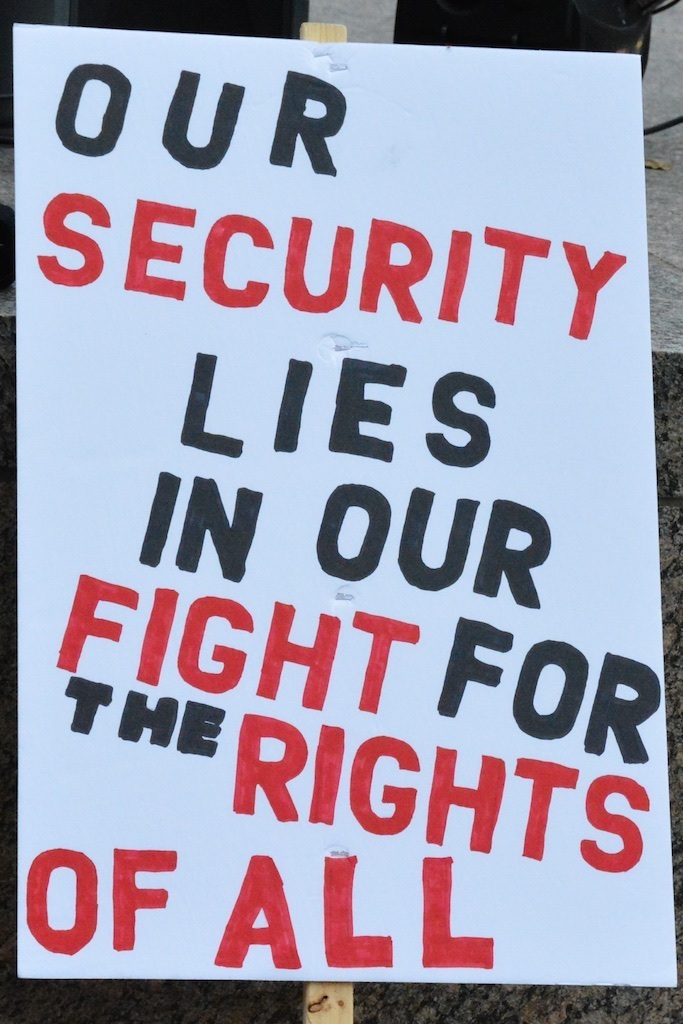 The
guide does not go far enough. However, we are going to work with it to
start, but we are going to demand more and more. On work sites with 25
workers or less, we will ensure that there is always water and
something to wash our hands. There is no way we are going to accept
degreasers or disinfectants. Construction workers' hands get
stained and dirty. What are they going to do with Purell? This is
completely out of sync with our situation. The
guide does not go far enough. However, we are going to work with it to
start, but we are going to demand more and more. On work sites with 25
workers or less, we will ensure that there is always water and
something to wash our hands. There is no way we are going to accept
degreasers or disinfectants. Construction workers' hands get
stained and dirty. What are they going to do with Purell? This is
completely out of sync with our situation.
WF: How do you see the intervention of construction workers and unions in the coming period?
FP: In Local 9, we have 23 representatives across
Quebec. The 23 of them will be present on the construction sites to
focus on the measures that will be taken to ensure that we are not the
agents of the propagation of COVID-19.
We are in the process of organizing ourselves to develop an
intervention strategy to ensure that workers can work safely, with
rules that will ensure that they will not contract COVID-19 at work and
that, if they catch it inadvertently, they will not be an agent in the
spread of the disease.
Workers want to earn a living. They want to move society forward.
But this should not be at the expense of their working conditions.
Already, we are working in a dangerous workplace where the necessary
preventive measures are not being taken.
Our role is to make sure that safety measures are taken, that
everything is going to be okay for everyone. We want to produce to
ensure that consumers receive their homes, their condos, by the
required date. We want to do that because we are part of this society,
but not at the expense of the safety of construction workers.

Transportation Workers
In an April 14 press release, the Canadian Union of Public
Employees (CUPE) Airline Division states that by refusing to
immediately compel Canadian airlines to fully comply with the COVID-19
guidance to protect airline workers, especially with regard to personal
protective equipment for the crews, the federal government is complicit
in
endangering the safety of these workers and the traveling public. The
statement recalls than on April 6, CUPE Airline Division local and
component presidents wrote a joint letter to Transport Minister Marc
Garneau and Labour Minister Filomena Tassi asking them to step in to
force airlines to provide flight attendants with the full personal
protective equipment (PPE) they need to do their jobs safely.
 The
letter of April 6 also asked the ministers to act to uphold the health
and safety laws and enforce the basic health and safety rights of
flight attendants, including their right to refuse dangerous work. The
letter of April 6 also asked the ministers to act to uphold the health
and safety laws and enforce the basic health and safety rights of
flight attendants, including their right to refuse dangerous work.
To date, no answer has been received.
The press release says that for months the CUPE Airline Division has
been saying that the lack of sufficient PPE
is endangering its members' safety on the job.
"Airlines in Canada are making progress, but not enough. For the
health and safety of our members and the traveling public, the federal
government must get involved now," said CUPE Airline Division President
Julie Roberts.
The statement reports that since March 15 there have been over 300
flights in Canada with confirmed COVID-19 travelers, resulting in at
least 60 confirmed cases of infection of CUPE members. Over 2,000
flight attendants across Canada are, or have been, in isolation after
working on flights with infected passengers on board.
Among the minimal standards that should be imposed by the federal government to the airlines, the CUPE division says:
- Reducing physical contact between flight attendants and passengers and in-flight service items is critical.
- Non-essential in-flight service to passengers needs to be
minimized. Flight attendants should only be interacting with passengers
for urgent matters such as medical or security situations.
- There must be increased availability of PPE, including medical
grade gloves, long-sleeve isolation gowns, N95 masks and face shields
for every flight attendant
- Airlines must properly stock every flight with adequate
disinfectant and potable water, and properly disinfect every plane
after every flight.
- Airlines or airports should have specially trained personnel
assigned to do the pre-flight screening of passengers for COVID-19
symptoms.
CUPE's Airline Division has more than 15,000 flight attendants in
its ranks. They work at Air Canada, Air Canada Rouge, Air Transat,
Sunwing, CALM Air, Canadian North, WestJet, WestJet Encore, Flair Air,
Swoop, Cathay Pacific, First Air, Air Georgian and PAL Airlines.

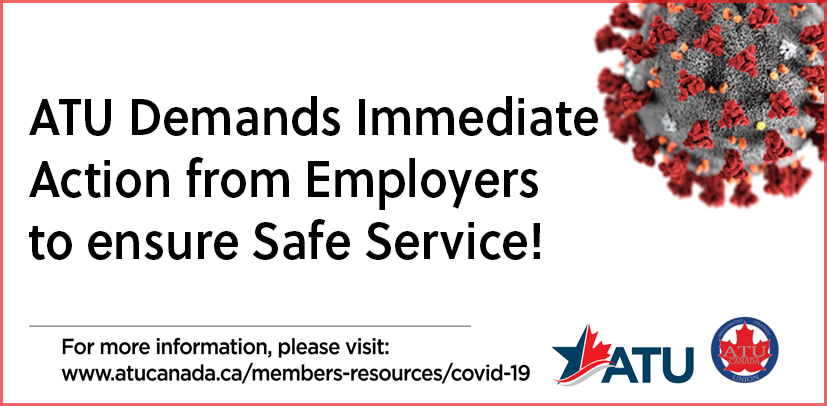
In an April 15 press release signed by John Di Nino, President of
the Amalgamated Transit Union (ATU) Canada, the union demands action
from the federal government to protect transit workers and preserve
this essential service.
The union states that as of April 15, transit workers across Canada
have not been provided personal protective equipment such as masks and
gloves. In spite of this they continue to work, moving the general
public including essential workers in health care, emergency services,
grocery, pharmacy and other services deemed essential.
"Public Transit employees have no way to protect themselves and have
a right to protective masks and gloves, just like other public service
workers," says Di Nino.
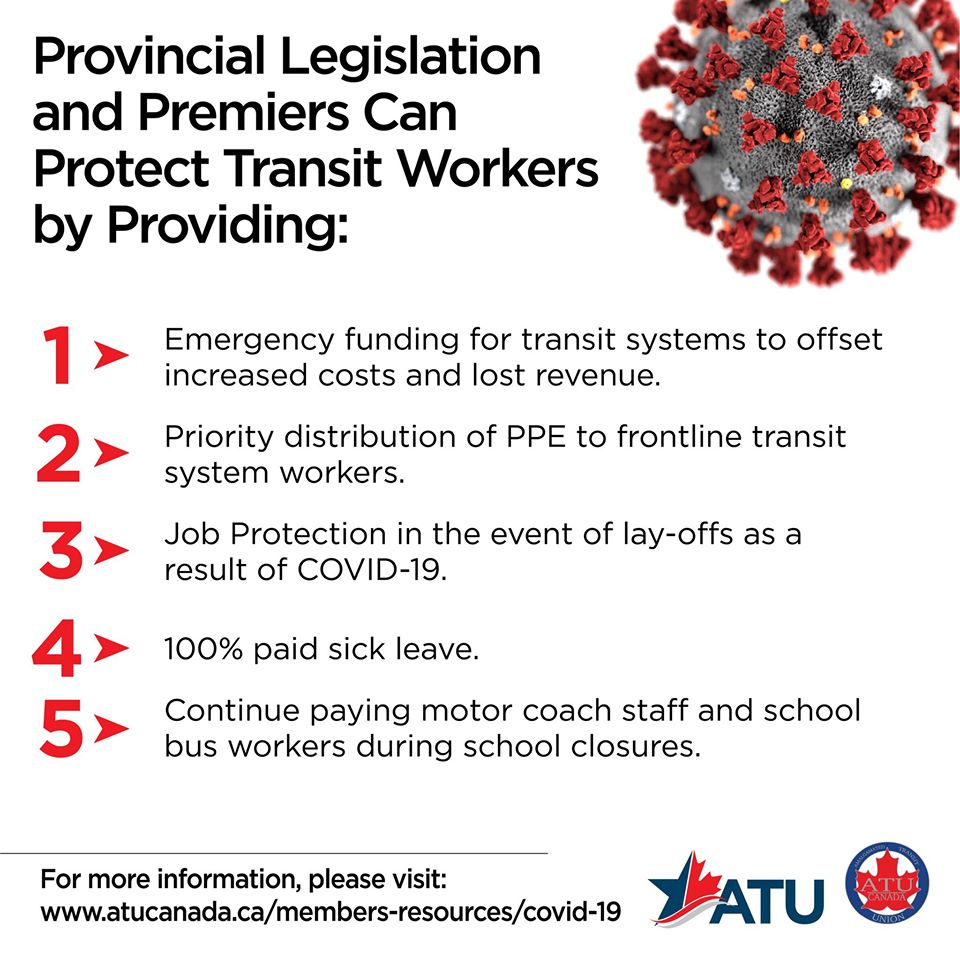 Di Nino
goes on to say: "We stand together to urge the government of Canada to
provide dedicated operating funding to public transit agencies in
Canada. We are united to help our community amid the pandemic and we
are united in our call for federal operating subsidies to make these
important investments in front line transit workers. Public
Transit across the nation is suffering from a drastic reduction in
riders as people are encouraged to stay at home until COVID-19 is under
control -- and this will lead to service reductions and lay-offs,
Public Transit operations rely on the farebox and without those fares,
the system will be devastated and unsustainable -- but the immediate
issue is
keeping our workers safe." Di Nino
goes on to say: "We stand together to urge the government of Canada to
provide dedicated operating funding to public transit agencies in
Canada. We are united to help our community amid the pandemic and we
are united in our call for federal operating subsidies to make these
important investments in front line transit workers. Public
Transit across the nation is suffering from a drastic reduction in
riders as people are encouraged to stay at home until COVID-19 is under
control -- and this will lead to service reductions and lay-offs,
Public Transit operations rely on the farebox and without those fares,
the system will be devastated and unsustainable -- but the immediate
issue is
keeping our workers safe."
As part of its demand for emergency funding to save Canada's public
transit system, ATU Canada is demanding the immediate redirection of at
least $5 billion from the Canadian Infrastructure Bank to support a
National Transit Strategy with dedicated operational funding.
Petition
ATU Canada has launched a national petition calling for people to
Stand with Canadian Transit Workers to send a strong message to the
Canadian government that it needs to protect the workers that move the
country.
The petition reads:
"To: The Cabinet Committee on the federal response to the coronavirus disease (COVID-19)
"From: [Name of the person]
"We, the transit professionals in mass public transit, over the road
buses, maintenance, bus operations, paratransit, train and subways, are
providing quality transportation to the people of Canada during the
COVID-19 pandemic. We have been working around the clock during this
crisis to deliver public transit for essential service workers on the
frontlines. As transit professionals, we are acutely aware of the
critical role we play in guaranteeing unrestricted access to mobility
for emergency service providers, health care professionals, and grocery
and retail workers.
"We are maintaining service, but we have urgent priorities that need
to be addressed with emergency funding for our agencies. These
priorities include personal protective equipment for transit workers,
additional leave for anyone affected by the virus, fare elimination to
support social distancing, rear door boarding and ensuring furloughed
transit workers are compensated and have jobs to return to when our
economy restarts."
To sign the petition, click here.

(To access articles individually click on the black headline.)
PDF
PREVIOUS
ISSUES | HOME
Website: www.cpcml.ca
Email: office@cpcml.ca
|

